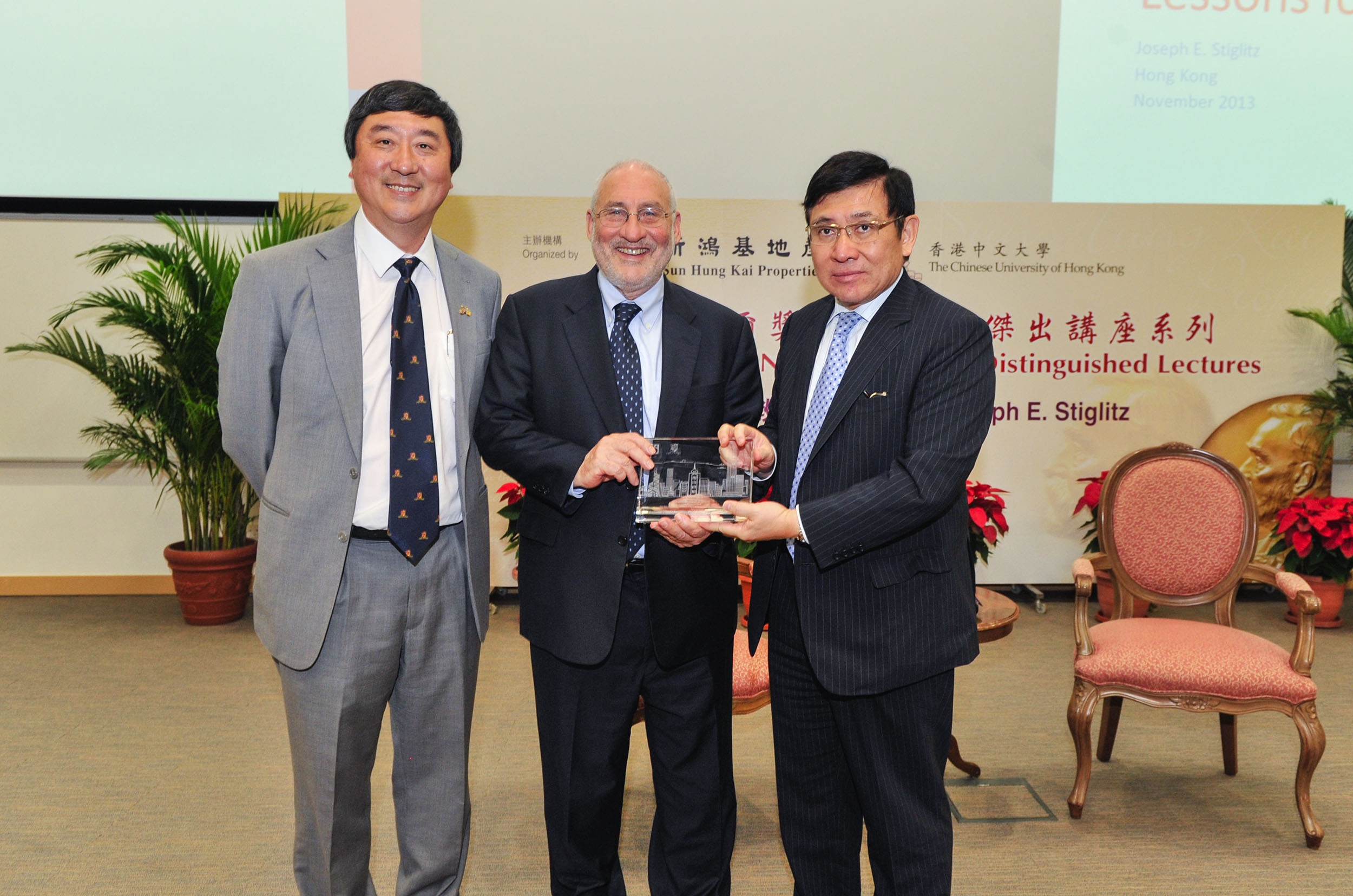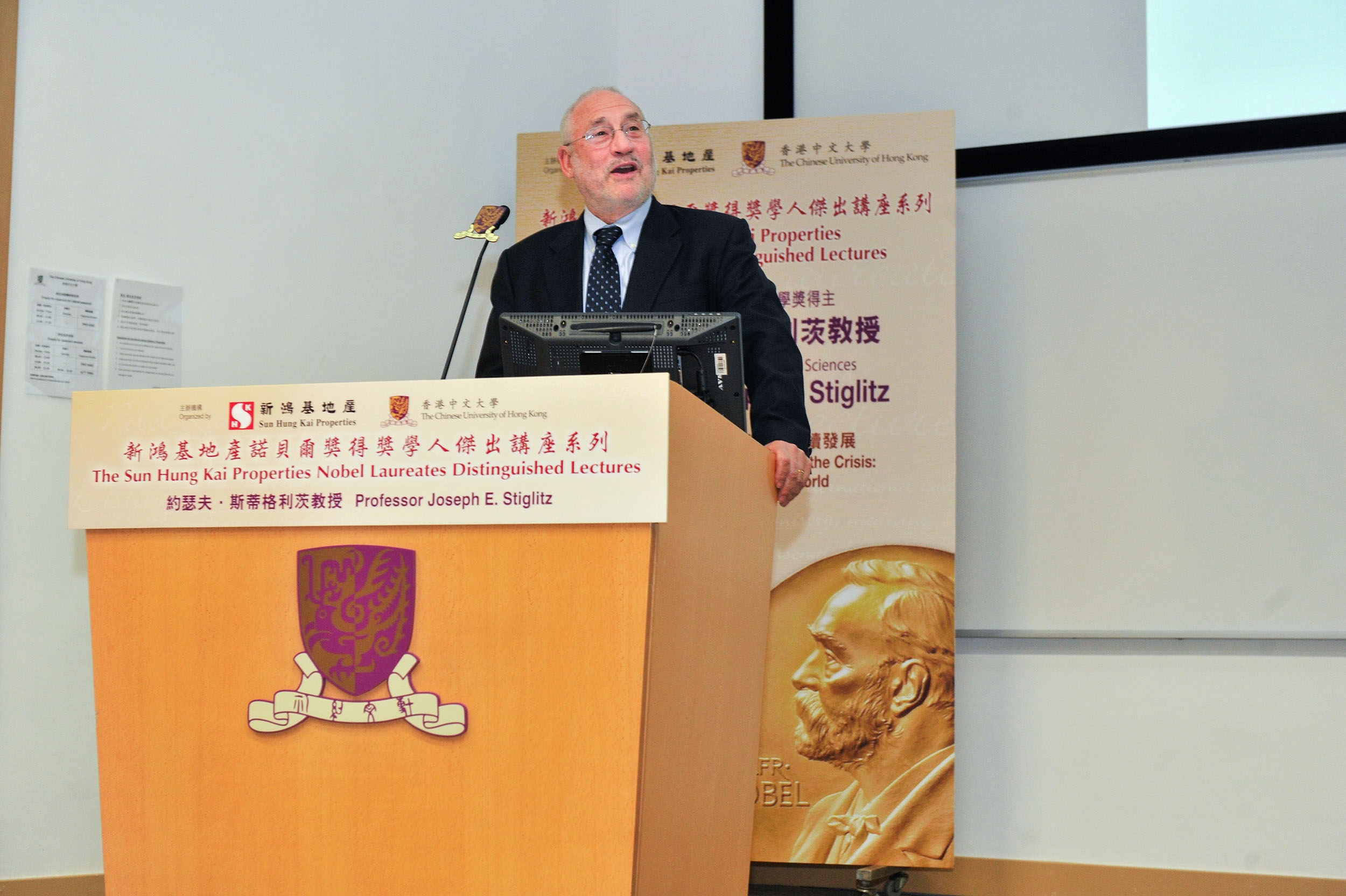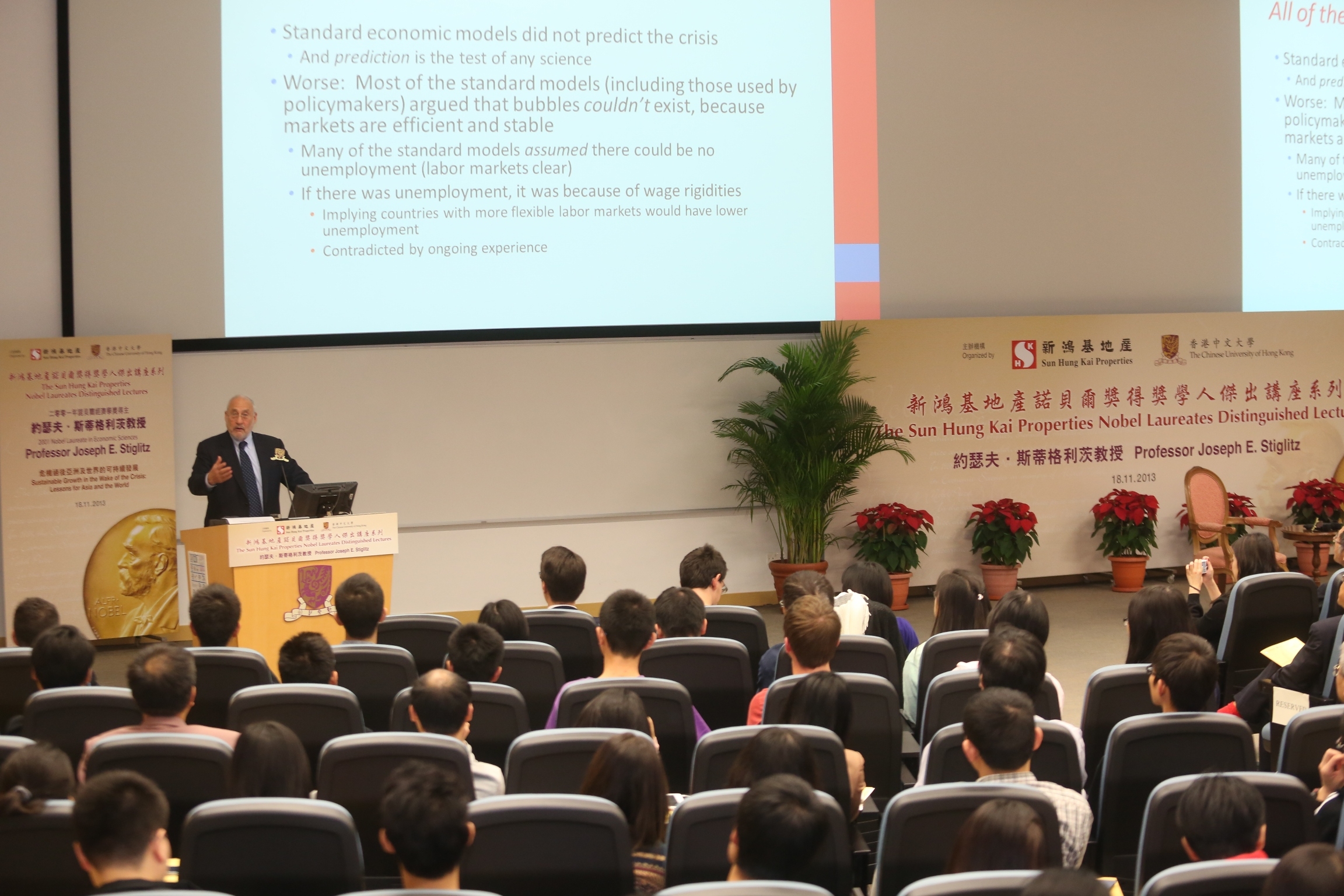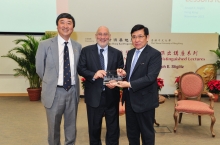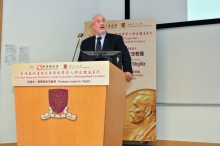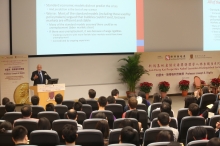News Centre
SHKP Nobel Laureates Distinguished Lectures approach 10th anniversaryRenowned economist Prof. Joseph E. Stiglitz lecturing on Sustainable Growth in the Wake of the Crisis: Lessons for Asia and the World
Sun Hung Kai Properties (SHKP) and The Chinese University of Hong Kong (CUHK) presented a public lecture on Sustainable Growth in the Wake of the Crisis: Lessons for Asia and the World by 2001 Nobel Laureate in Economics Professor Joseph E Stiglitz. The lecture drew a full house of 600 academics, students, members of the commercial and financial sectors and the public. It was shown live at local and mainland universities including Peking, Tsinghua, Fudan, Shanghai Jiao Tong, Zhejiang and Nanjing Universities and a webcast was also available on the CUHK website.
SHKP Chairman and Managing Director Dr. Raymond Kwok said: “Sun Hung Kai Properties puts great emphasis on corporate social responsibility and this Nobel lecture series is part of our commitment to promoting education, reading and life-long learning. We hope that this lecture will enrich young minds and instill an international perspective. We are sure the new ideas and insights gained by young people will help promote the economic and social development of Hong Kong.”
CUHK Vice-Chancellor Prof. Joseph Sung thanked SHKP’s support for the Nobel lecture series since 2004. He added: “The year of 2013 marks the Golden Jubilee of the University, it is our honour to have Professor Stiglitz, an internationally acclaimed economist and commentator to share his scholarship with us during our 50th Anniversary.”
The lecture series has brought Nobel laureates to address a broad cross-section of the community and promote the discovery and dissemination of knowledge and encourage life-long learning and innovation for ten years. This 21st installment of the series brought the number of Nobel laureates or renowned scholars who have lectured in Hong Kong to 28.
Professor Stiglitz’s lecture evaluated the implications of the financial crisis that began in 2007 for economic theory and policy, in particular in China and in Asia. The market and regulatory failures that sparked the global downturn held out stark lessons for economists and policymakers, but those lessons have not all been learned–at least not as much as they should have been. Professor Stiglitz charted another way forward, explaining the hazards and opportunities of the post-crisis world, with a particular emphasis on the economies of Asia.
Professor Stiglitz is an internationally-acclaimed economist and commentator. His scholarship covers a wide spectrum of economics, including macro-economics and monetary theory, development economics and trade theory, public and corporate finance, theories of industrial and rural organization and theories of welfare economics and of income and wealth distribution. He often gives comments, criticisms and suggestions on key social and economic issues in the US and is concerned about the economic and developmental challenges faced by the Eurozone, China and other Asian countries, making him one of the most influential economists in the world.
Professor Stiglitz created a new branch of economics ‘The Economics of Information’ which earned him the Nobel Prize in 2001. He suggested that asymmetries of information and other imperfections of information in the market could have profound effects on how the economy behaved. He pioneered such pivotal concepts as adverse selection and moral hazard, which have now become standard tools of theorists and policy analysts. He is recognized around the world as a leading economic educator and has numerous publications on economic, political and social issues. His book Globalization and Its Discontents has been translated into 35 languages and has sold more than a million copies worldwide. He recently completed the Stiglitz Report with experts in the United Nations to analyse the global financial crisis.
Professor Stiglitz received his Ph.D. from MIT in 1967, became a full professor at Yale in 1970. He served as the chairman of the Council of Economic Advisers from 1995-97 during the Clinton administration, then became Chief Economist and Senior Vice-President of the World Bank from 1997-2000. In 2008 he was asked by the French President Nicolas Sarkozy to chair the Commission on the Measurement of Economic Performance and Social Progress. In 2009 he was appointed by the President of the United Nations General Assembly as chair of the Commission of Experts on Reform of the International Financial and Monetary System.
In 1979, Professor Stiglitz received the John Bates Clark Award, given biennially by the American Economic Association to the economist under 40 who has made the most significant contribution to the field. In 2011 he was named one of the 100 most influential people in the world by Time. Professor Stiglitz is currently University Professor at Columbia University in New York and Co-Chair of Columbia University’s Committee on Global Thought. He is also the founder and Co-President of the Initiative for Policy Dialogue at Columbia.
For more photos, please visit:
https://www.cpr.cuhk.edu.hk/en/events_recap_detail.php?id=152&s=
